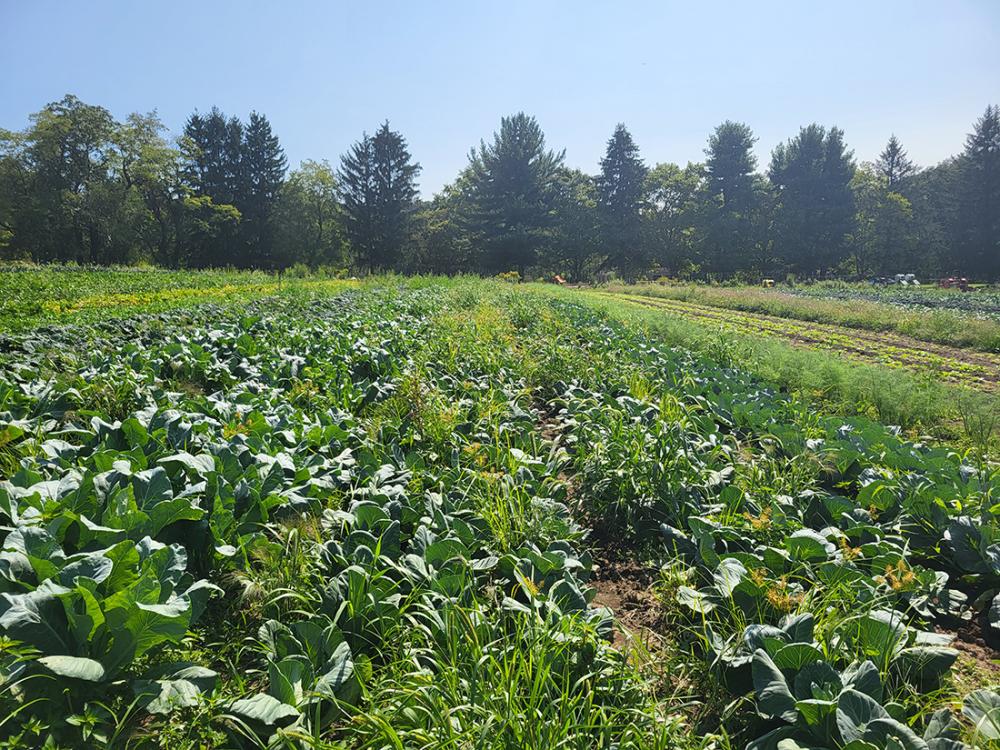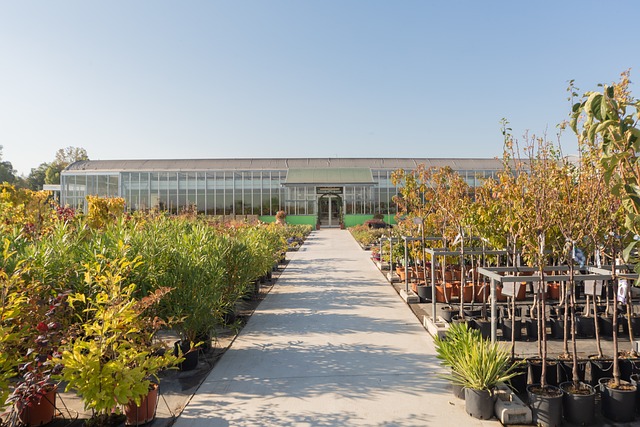USDA awarded a $1 million grant to a team of plant scientists and an economist to explore anaerobic soil disinfestation (ASD).
Weeds are a major barrier to achieving higher yields in organic vegetable and horticultural crop systems. The lack of effective biological weed-management solutions presents a significant challenge to the broader adoption of organic farming practices. To address this, the U.S. Department of Agriculture (USDA) has awarded a $1 million, four-year grant to a Penn State-led team of plant scientists and an economist to explore anaerobic soil disinfestation (ASD), a microbial-driven process aimed at weed management to support the transition from conventional to organic farming systems.
“Anaerobic soil disinfestation — often referred to as ASD — is emerging as a broad-spectrum biological soil treatment for the management of soilborne pests and pathogens, including weeds,” said Francesco Di Gioia, associate professor of vegetable crop science at Penn State’s College of Agricultural Sciences. “It is an ecological alternative to chemical soil fumigation. The method consists of incorporating easily decomposable organic amendments into the soil, followed by irrigation to saturation and soil cover with impermeable plastic.”
The ASD process promotes the decomposition of organic matter through soil saturation, creating anaerobic conditions that build up volatile fatty acids and other organic acids that are toxic to weeds. Without oxygen, weed seed respiration is suppressed, and changes in soil temperature and pH levels work together to kill weed tissues, preventing further propagation.
The project’s primary goal is to improve the profitability and sustainability of organic vegetable and specialty crop production while facilitating the transition to organic farming. According to Di Gioia, this will be achieved by optimizing and integrating ASD as a biological weed-management strategy in specialty crop systems, with a focus on promoting soil health.
The research will include coordinated on-farm demonstration trials in Florida and Pennsylvania, two states representing the U.S. Northeast and Southeast, to evaluate ASD’s effectiveness in suppressing key weed species.
“In addition to assessing the efficacy of anaerobic soil disinfestation in suppressing specific weeds, the project will allow us to investigate the impact of ASD on soil-plant nutrient dynamics, investigate the mechanism of suppression, and examine the impact of the treatment on the soil microbiome,” Di Gioia explained.
Claudia Schmidt, assistant professor of marketing and local/regional food systems at Penn State, will study the economic sustainability of ASD.
“She will identify obstacles to the adoption of this new biological solution,” Di Gioia said in a Penn State news release. “She will oversee the economic analysis and assessment of the obstacles to adoption.”
This research is part of the USDA’s $121 million investment to advance research and extension activities to address key challenges in specialty crops, including fruits, vegetables, tree nuts, dried fruits, horticulture, nursery crops, and organic agriculture. The funding includes $70.4 million for specialty crop production research and $50.5 million to support farmers and ranchers who grow and market organic food, fiber, and products.
Other key team members from Penn State include Caio Brunharo, assistant professor of weed science, Francisco Dini-Andreote, assistant professor of phytobiomes, and horticulture educators Leah Fronk and Glen Bupp from Penn State Extension. Additional team members include Erin Rosskopf, research leader/microbiologist, and Jason Hong, research molecular biologist, both from the USDA’s Agricultural Research Service U.S. Horticultural Research Laboratory in Fort Pierce, Florida, and Natosha Finley, assistant professor of chemistry at Central State University.











